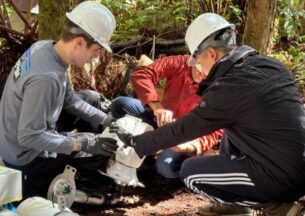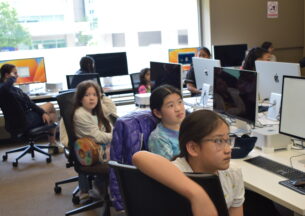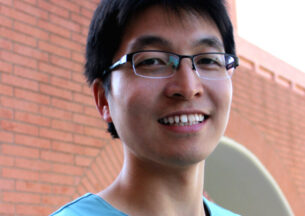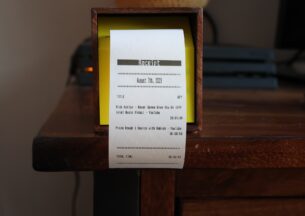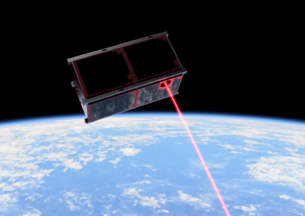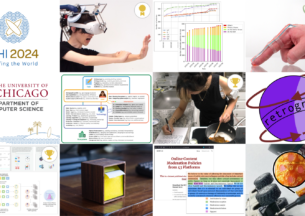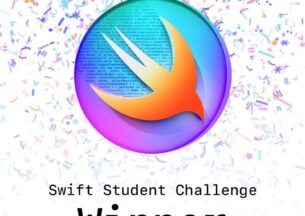UChicago Partners With UMass On NSF Expedition To Elevate Computational Decarbonization As A New Field In Computing
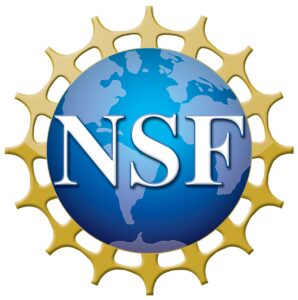 A team of researchers from the University of Chicago has been named winners of the 2024 NSF CISE Expedition Program for their part in the proposal of computational decarbonization (CoDec). This prestigious award, granted by the National Science Foundation (NSF), underscores the groundbreaking potential of CoDec in revolutionizing societal decarbonization through computational innovation.
A team of researchers from the University of Chicago has been named winners of the 2024 NSF CISE Expedition Program for their part in the proposal of computational decarbonization (CoDec). This prestigious award, granted by the National Science Foundation (NSF), underscores the groundbreaking potential of CoDec in revolutionizing societal decarbonization through computational innovation.
As the largest research award within the NSF’s Computer and Information Science and Engineering (CISE) directorate, the Expeditions in Computing program recognizes pioneering endeavors poised to make profound impacts on both scientific understanding and societal advancement. The CoDec Expedition, with a total funding of $12 million, is a collaborative effort led by UMass Amherst, in which the University of Chicago plays a pivotal role.
At the helm of the University of Chicago’s team is William Eckhardt Distinguished Service Professor Andrew A. Chien from the Department of Computer Science. Chien will work alongside colleagues Hobart W. Williams Distinguished Service Professor of Operations Management John Birge from the Booth School of Business and The Ralph and Mary Otis Isham Professor Ali Hortacsu from the Department of Economics. Together, they will spearhead efforts to tackle the pressing challenge of decarbonization with a perspective that blends computing, power grids, markets, and device ecosystems.
The CoDec Expedition aims to address the urgent need for decarbonization in the face of escalating energy demands driven by rapidly expanding industries such as data centers, artificial intelligence, and electric vehicles. By developing the field of computational decarbonization, the project looks to optimize and reduce the lifecycle carbon emissions of complex infrastructure systems across various domains, including computing, transportation, and the electric power grid.
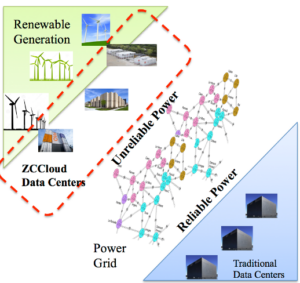 The University of Chicago’s contributions to the CoDec Expedition will feature a multidisciplinary research agenda spanning computing and economics in multiple dimensions. One thrust will continue a longstanding research interest of Chien and Birge: understanding the intricate interplay between data centers and the power grid, crucial for expediting grid decarbonization. The rapid growth of artificial intelligence (AI) power demands has created global concern about the stability of the power grids, and the growth’s environmental consequences.
The University of Chicago’s contributions to the CoDec Expedition will feature a multidisciplinary research agenda spanning computing and economics in multiple dimensions. One thrust will continue a longstanding research interest of Chien and Birge: understanding the intricate interplay between data centers and the power grid, crucial for expediting grid decarbonization. The rapid growth of artificial intelligence (AI) power demands has created global concern about the stability of the power grids, and the growth’s environmental consequences.
Chien has led a series of efforts exploring opportunities presented and challenges faced by the incorporation of renewable energy in the power grid. These efforts identified the opportunity of “stranded power”– negative priced power that is increasing in quantity and frequency– and also proposed a cost-effective flexible computing approach called “Zero-carbon Cloud”, which has been taken up as large-flexible loads in numerous power grids (eg. ERCOT/Texas). His recent efforts have focused on creating synergies between datacenters (large, adaptive loads) and the power grid.
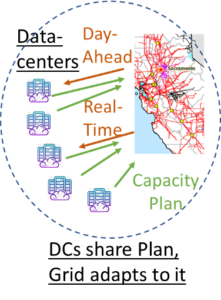 Years of combined research by Chien and Birge have shown that the deep innovations in markets, datacenter design, cloud and AI computing, and power engineering are essential to reduce operational carbon.
Years of combined research by Chien and Birge have shown that the deep innovations in markets, datacenter design, cloud and AI computing, and power engineering are essential to reduce operational carbon.
“The power grid is facing huge challenges to decarbonize, and data centers need new capabilities to help, not hinder, progress,” emphasized Chien. “Coupling datacenter flexibility with power grids effectively in power grid markets is a key problem.”
Another thrust explores the lifecycle carbon of consumer computing devices, exploring new economic incentives that could 1) increase the longevity of computing devices, especially cell phones, while increasing their utility and profitability, or 2) reduce the environmental impact of manufacture or circular reuse / recycling. This effort includes Professors Hortacsu and Chien.
The larger CoDec Expedition will develop novel computational techniques, algorithms, and AI methods tailored for addressing decarbonization challenges over extensive timeframes and geographic dimensions. These efforts will not only propel scientific breakthroughs but also facilitate the transition to a low-carbon future essential for societal well-being, economic prosperity, and environmental sustainability.
“No sustainability gains will persist long term without consistent economic incentives,” stated Birge. “At UChicago, we are pleased to lead the CoDec research efforts to examine those incentives to ensure sustainable economic outcomes.”
The CoDec project also includes faculty at MIT, CMU, UCLA, and UW-Madison. Further, the project aims to nurture a new generation of leaders equipped with the knowledge and skills to tackle complex societal challenges. Through innovative educational initiatives, the Expedition will empower the workforce of tomorrow to drive sustainable change. Central to this endeavor is the development of new educational programs and curricula that elevate computational decarbonization as a core topic in computing. By introducing activities that broaden participation in computing through undergraduate research and k-12 outreach, the Expedition will instill a deep understanding of the principles and practices of carbon-efficient computing at an earlier age.
“All technologists and technology companies must take responsibility for the sustainability impact of their invention,” said Chien. “This project is a terrific opportunity to address key environmental sustainability challenges that the extraordinary success of computing has created.”




